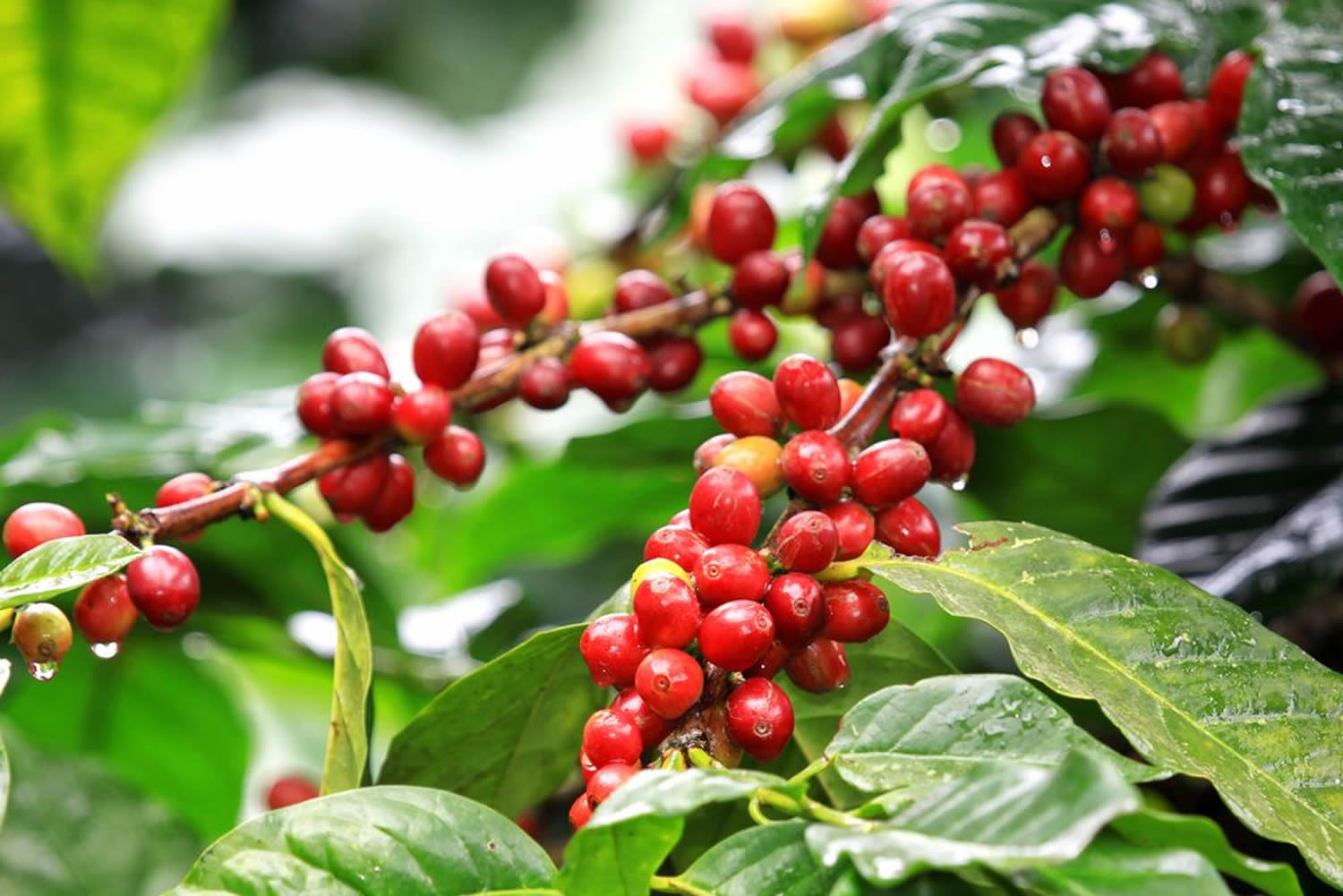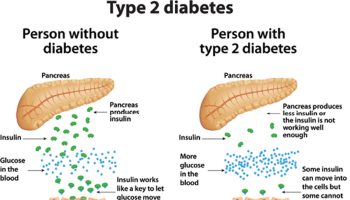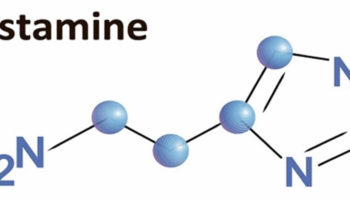What is berberine
Berberine is an alkaloid isolated from several plants including European barberry, goldenseal, goldthread, Oregon grape, phellodendron, and tree tumeric 1.
Berberine has antioxidant effects and multiple pharmacological properties. It has been found to be effective against gastroenteritis, diarrhea, hyperlipidemia, obesity, fatty liver and coronary artery diseases, hypertension, diabetes and metabolic syndrome, polycystic ovary 2 and Alzheimer’s disease 3. Recently, in vitro studies using cancer cell lines have shown that berberine inhibits cancer cell proliferation and migration, and induces apoptosis in a variety of cancer cell lines 4, stimulating further development of derivatives for drug-base cancer prevention and treatment.
People take berberine for heart failure. Berberine might cause stronger heartbeats. It also might also be able to kill bacteria 5.
Some people apply berberine directly to the skin to treat burns and to the eye to treat trachoma, a bacterial infection that frequently causes blindness 6.
Figure 1. Berberine

Berberine Test Tube and Animal Studies on anti-inflammatory and anti-tumor effects
Berberine anti-gastroenteritis effect and its mechanism
Berberine has been used to treat inflammatory bowel disease (IBD), eg, dysentery, for many years. Numerous investigations on berberine have revealed its anti-inflammatory activities in the digestive system 7, which mainly contribute to the protection of the intestinal epithelial barrier and the regulation of intestinal inflammatory cytokines and transcription. Microbiology and genetics studies have shown that inflammatory bowel disease (IBD) results from an excessive immune response of the intestinal flora induced by a mucosal immune system disorder or a change in the intestinal flora composition.
The anti-inflammatory activity of berberine was detected by the reduction of proinflammatory cytokines such as TNF-α, IL-13, IL-6, IL-8 and IFN-γ (Figure 2). It has been reported that berberine is able to completely antagonize the TNF-α-mediated barrier defects in cell models, which is related to tyrosine kinase, pAkt and NF-κB pathways 8. One in vitro study demonstrated that berberine has the ability to ameliorate proinflammatory cytokine-induced intestinal epithelia tight junction damage 9. This process is regulated by cytokines 10 such as the Th2 cytokine interleukin-13 (IL-13), as well as TNF-α and IFN-γ 11. IL-8 is an important cytokine for the recruitment and activation of polymorph nuclear neutrophil cells that are abundant in the intestinal lesions of IBD. Berberine is beneficial to the mucosal healing process, possibly by inhibiting IL-8 production. For example, IL-8 production in rectal mucosa is inhibited by berberine at a concentration of 10.0 nmol/L in trinitrobenzene sulfonic acid (TNB)-induced colitis in rats 12. These effectors not only play important roles in inflammation but are also involved in the process of tumor development and dissemination 9.
Figure 2. Summary of the anti-inflammatory effect of berberine

Berberine anti-hepatic inflammatory effect and its mechanism
Berberine can down-regulate several hepatic proinflammatory genes, including TNF-α, IL-6 and serum amyloid A3 (SAA3), which are proposed to play important roles in the development of steatohepatitis 13. This effect of berberine may occur via the activation of AMPK and inhibition of NF-κB 14. The anti-inflammatory effect of berberine in hepatic cells has been observed in different animal models. Some in vitro and in vivo studies carried out in male albino rats have shown that berberine decreased the expression of both TNF-α and COX-2 in a hepatotoxicity rat model induced by cyclophosphamide (CP) 15. Berberine is able to effectively inhibit the production of IL-6 and TNF-α in HepG2 cells. Its mechanism of action for anti-inflammation could be attributed to the inhibition of ERK1/2 activation 16. This anti-inflammatory activity was similar to the data in a recent study reporting that berberine inhibited the LPS-induced inflammatory response in macrophages 17. Other researchers studied the mechanism of the anti-hepatitis effect of berberine and found that berberine significantly decreased the expression of pro-/anti-inflammatory and/or Th1/Th2 cytokines, suggesting that berberine alleviated spontaneous inflammation in non-obese diabetic mice 18.
Berberine anti-tumor activity in the digestive system
The anti-tumor activity of berberine mainly includes inhibiting the growth of tumor cells, promoting tumor cell apoptosis, inducing the differentiation of tumor cells and inhibiting the expression and metastasis of tumor cells. As summarized in Figure 3, the mechanism of these effects is the down-regulation of the level of cyclin and growth factor receptors and the inhibition of some signaling pathways9. Moreover, berberine has a preventive effect on tumors via the regulation of inflammatory cytokines.
Figure 3. Summary of the anti-tumor effect of berberine

With its wide spectrum of anti-tumor properties, berberine has potential applications as a complementary medicine for the prevention and treatment of human cancers. Studies have already shown that berberine has potential anti-tumor activities in the digestive system including nasopharyngeal carcinoma (NPC), gastric cancer, liver cancer and intestinal cancer 19.
Berberine has also been used in combination with drugs or radiotherapy, which enhances the effect of other drugs and radiotherapy or reduces their side effects. The administration of berberine with cisplatin and evodiamine increased their cytotoxic effects on many cancer cell types 20. The toxicity of vincristine towards hepatoma cells is reduced by the combinatorial effects of berberine, and cell resistance to drugs is decreased by combination treatment with berberine 21. Moreover, the combination of radiotherapy and berberine exerts a synergistic cytotoxic effect on different tumor cell lines 22.
Table 1. Effects of berberine on various cancer cell lines
| Cell line | Origin | Effect |
|---|---|---|
| NCE-1, NCE-2, NPC5-8F, C666-1 | Nasopharyngeal carcinoma | Telomerase, Ezrin and STAT3 inhibition |
| MGC803 | Gastric carcinoma | Down-regulation of Bcl-2 and up-regulation of Bax and p53; cycle arrest and cell apoptosis |
| HCC, HepG2, SMMC-7721, Bel7402 | Hepatoma | Cytochrome c release; Bcl-2/Bcl-xL decrease; activation of the AMPK-mediated caspase-dependent mitochondrial pathway; down-regulation of the Rho/ROCK signaling pathway |
| HT29, SW480 | Colorectal cancer | Cell cycle arrest; loss of mitochondrial membrane potential; induction of Bcl-2 family proteins; COX-2 regulation |
The anti-gastric cancer effect and its mechanism
Berberine is able to inhibit the proliferation and induce the apoptosis of gastric cancer cells. It has been reported that berberine (10 μg/mL) can cause G0/G1 cell arrest and cell apoptosis. The underlying mechanism may be attributed to the down-regulation of Bcl-2 and the up-regulation of Bax and p53 in a time- and dose-dependent manner 23. Other studies have demonstrated that the mechanism might be related to the inhibition of the PI3K signaling pathway 24. IL-8 is a type of autocrine growth factor that induces tumor blood vessel growth and promotes the growth of a wide variety of tumor invasion, metastasis and proliferation 25. Berberine reduces the level of IL-8, which is related to its inhibition of PI3K signaling pathways 26. A synergistic anti-gastric cancer effect was also observed when berberine was used in combination in vivo and in vitro models, such as the combination of berberine and d-limonene. The combination exerted synergistic anticancer effects on MGC803 cells by inducing cell cycle arrest, inhibiting reactive oxygen species (ROS) production, and inducing apoptosis through the mitochondria-mediated intrinsic pathway 27.
Berberine exhibits the ability to induce apoptosis in human gastric cancer cells by interacting with nucleic acids, especially DNA, in vitro 28. Studies have shown that berberine can cause G0/G1 cell cycle arrest and cell apoptosis49 and that the mechanism is related to cell cycle-related proteins such as p21, Cdk2, Cdk4, and cyclins D1 and E 27. Some studies have reported that berberine can down-regulate the expression of mutant p53 and p21 and block human gastric carcinoma cell entrance to the cell cycle in G0/G1 phase58. In addition, other studies have reported that berberine enables tumor cells to be blocked in the G2/M phase 29.
Berberine anti-hepatoma effect and its mechanism
Previous studies have confirmed the anti-tumor effects of berberine on the human hepatocellular carcinoma (HCC) cell line by inhibiting proliferation and inducing apoptosis in HCC cells 30. CD147 is highly expressed in HCC cells, which can promote tumor invasion and metastasis, inhibit apoptosis and anoikis, promote tumor angiogenesis, and confer resistance to some chemotherapeutic drugs 31. It has been reported that berberine induces both apoptosis and cell death in HepG2 cells, which correlates with the down-regulation of CD147 32. AMPK is a metabolic sensing protein kinase. Its activation is accompanied by an apoptotic effect that occurs in a caspase-dependent manner through the mitochondrial pathway. Studies have demonstrated that the activation of AMPK leads to the induction of apoptosis in numerous human cancer cell types 33. Studies have also demonstrated that berberine selectively inhibited the growth of human hepatocellular cancer cells by inducing AMPK-mediated caspase-dependent mitochondrial pathway cell apoptosis 34. Synergistic anti-tumor effects were also observed when berberine was used in combination to treat hepatoma. The combined use of berberine and evodiamine could significantly enhance the apoptosis of SMMC-7721 cells, which was related to the up-regulation of the level of TNF-α 35. In addition, the use of berberine in combination with the microtubule poison vincristine has been proven to be efficient against hepatoma cell lines by potentiating the pro-apoptotic effect of the single drug. Other studies have shown that the interstitial implantation of radioactive seed 125I induced hepatoma cell apoptosis. This effect could be enhanced when 125I was combined with berberine, which induces apoptosis, cell degeneration and necrosis 36. Studies have also indicated that the anti-tumor activity of gamma radiation is significantly enhanced by berberine via the activation of the p38 MAPK pathway and ROS generation in human hepatoma cells 37.
The anti-colorectal cancer effect and its mechanism
Berberine can inhibit the growth of human colorectal adenocarcinoma in vivo and in vitro. The inhibition is related to the induction of G1/S and G2/M cell cycle arrest, which depends on the regulation of checkpoint protein expression. It has been reported that berberine can inhibit colorectal adenocarcinoma growth by inducing G2/M phase arrest and down-regulating the expression of related cyclins, such as cyclins B1, cdc2 and cdc25c. The IC50 value is 40.79±4.11 μmol/L (72 h) 38. Other studies indicated that a combination of berberine and evodiamine could inhibit cell proliferation by down-regulating miR-17–92 and E2F1 protein expression in colorectal cancer HT29 cells 39. Berberine is combined with irinotecan to potentiate the cytotoxicity of colon cancer cells, which might be attributed to an increased rate of apoptosis, possibly mediated by the inhibition of NF-κB activation 21. Research has indicated that berberine can inhibit the growth of colon carcinoma lovo cells and induce their apoptosis; the mechanism is associated with inhibition of COX-2 expression 40. EGFR is a tyrosine kinase that participates in the regulation of cellular homeostasis, which influences cell proliferation, apoptosis, migration, survival and complex processes, including angiogenesis and tumorigenesis 41. Berberine was able to decrease proliferation and EGFR expression levels in colon epithelial cells, which correlated with the enhancement of Cbl activity 42.
The current study has demonstrated that berberine possesses the ability to cause cell cycle arrest, induce apoptosis and inhibit inflammation in colon cancer cells. Studies have shown that berberine arrested the SW480 cell cycle at the G2/M phase. Some biochemical events were observed, including the loss of mitochondrial membrane potential, the release of cytochrome-c into the cytosol, the induction of Bcl-2 family proteins and caspases, and the cleavage of poly (ADP-ribose) polymerase (PARP). Furthermore, berberine inhibited caspase-8-mediated angiogenesis, as confirmed through the inhibition of the expression of tumor necrosis factor-related apoptosis-inducing ligand (TRAIL), vascular endothelial growth factor (VEGF) and survivin 43. Apoptosis-inducing factor (AIF), a mitochondrial oxidoreductase, is one of the best-studied mediators stimulating caspase-independent cell death. Berberine induces the ROS-mediated stimulation of AIF activation through cathepsin B release and PARP activation, which leads to caspase-independent cell death in colon tumor cells 44.
Berberine not only exhibits growth suppression effects and induces apoptosis but can also prevent the formation of colorectal carcinoma, which depends on the regulation of the related protein expression of berberine. COX-2 plays a key role in the formation of cancers, and berberine possesses a down-regulatory effect on the mRNA and protein expression of COX-2 45. Numerous studies have demonstrated that PPARγ prevents the formation of and induces apoptosis in colon cancer 46. Thus, PPARγ is likely to become a new target for the prevention and treatment of colon cancer. It has been reported that berberine exhibited inhibitory effects on the proliferation of lovo cells but decreased the expression level of PPARγ mRNA in lovo cells 47. Berberine can also prevent the appearance of malignant morphology and ultrastructural changes of azoxymethane (AOM)-induced cancer by producing apoptosis-like changes. Thus, berberine inhibits neoplastic transformation by inducing the antioxidant defense system 48.
Berberine benefits
Over the past decade, many reports have demonstrated that berberine and its derivatives have high activity against both cancer and inflammation.
Possibly effective for:
- Diabetes. Berberine seems to slightly reduce blood sugar levels in people with diabetes. Also, some early research suggests that taking 500 mg of berberine 2-3 times daily for up to 3 months might control blood sugar as effectively as metformin or rosiglitazone.
- High cholesterol. There is early evidence that berberine can help lower cholesterol levels in people with high cholesterol. Taking 500 mg of berberine twice daily for 3 months seems to reduce total cholesterol, low-density lipoprotein (LDL or “bad”) cholesterol, and triglyceride levels in people with high cholesterol.
Insufficient evidence to rate effectiveness for:
More evidence is needed to rate the effectiveness of berberine for these uses.
- Burns. Early research suggests that applying an ointment that contains berberine and beta-sitosterol can treat second-degree burns as effectively as conventional treatment with silver sulfadiazine.
- Congestive heart failure (CHF). Early research suggests that berberine can reduce some of the symptoms and lower the death rate in some people with congestive heart failure.
- Diarrhea. Some early research suggests that berberine sulfate can decrease diarrhea in people with certain bacterial infections. Also, berberine hydrochloride seems to speed up recovery time for people with diarrhea when added to some standard treatments. However, berberine does not seem to enhance the effects of tetracycline in treating diarrhea related to cholera infection.
- Glaucoma. Early research suggests that using eye drops containing berberine and tetrahydrozoline for 3 days does not reduce eye pressure in people with glaucoma better than eye drops containing tetrahydrozoline alone.
- Stomach ulcers caused by Helicobacter pylori (H pylori) infection. Early research suggests that taking berberine three times daily for 6 weeks is more effective than the drug ranitidine at eliminating H. pylori infection, but less effective at healing ulcers in people with stomach ulcers due to H. pylori.
- Hepatitis. Early research suggests that taking berberine daily for 2 months decreases blood sugar, triglycerides, and markers of liver damage in people with diabetes and hepatitis B or C.
- Liver disease. Early research suggests that taking berberine for 12 weeks reduces fat in the blood and markers of liver damage in people with liver disease and diabetes.
- Menopausal symptoms. Early research suggests that taking berberine and soy isoflavones can reduce menopausal symptoms.
- Metabolic syndrome. Taking a combination product (Armolipid Plus) containing berberine, policosanol, and red yeast rice might improve blood pressure and blood flow in people with metabolic syndrome.
- Obesity. Early research suggests that taking berberine for 12 weeks can reduce weight in obese people by about 5 pounds.
- Osteoporosis. Early research suggests that taking berberine together with vitamin D3, vitamin K, and a chemical found in hops for 14 weeks can decrease bone loss in postmenopausal women with osteoporosis.
- An ovary disorder known as polycystic ovary syndrome (PCOS). Early research suggests that berberine can reduce blood sugar, cholesterol, triglycerides, testosterone, and waist-to-hip ratio in women with PCOS.
- Injuries caused by radiation. Some early research suggests that taking berberine during radiation therapy can reduce the occurrence and severity of some injuries caused by radiation in patients being treated for cancer.
- Low blood platelet counts (thrombocytopenia). Blood platelets are important for blood clotting. Early research suggests that taking berberine for 15 days, either alone or with prednisolone, can increase the number of blood platelets in people with low blood platelet counts.
- Trachoma. There is some evidence that eye drops containing berberine might be useful for treating trachoma, a common cause of blindness in developing countries.
- Other conditions.
What dose of berberine used ?
The appropriate dose of berberine depends on several factors such as the user’s age, health, and several other conditions. At this time there is not enough scientific information to determine an appropriate range of doses for berberine. Keep in mind that natural products are not always necessarily safe and dosages can be important. Be sure to follow relevant directions on product labels and consult your pharmacist or physician or other healthcare professional before using.
Berberine side effects
Berberine is POSSIBLY SAFE for most adults for short-term use when taken by mouth or applied to the skin.
Special precautions & warnings:
Children: It’s UNSAFE to give berberine to newborns. It can cause kernicterus, a rare type of brain damage that can occur in newborns who have severe jaundice. Jaundice is yellowing of the skin caused by too much bilirubin in the blood. Bilirubin is a chemical that is produced when the old red cells break down. It is normally removed by the liver. Berberine may keep the liver from removing bilirubin fast enough.
Pregnancy and breast-feeding: It’s UNSAFE to take berberine by mouth if you are pregnant. Researchers believe berberine can cross the placenta and might cause harm to the fetus. Kernicterus, a type of brain damage, has developed in newborn infants exposed to berberine.
It’s also UNSAFE to take berberine if you are breast-feeding. Berberine can be transferred to the infant through breast milk, and it might cause harm.
Diabetes: Berberine can lower blood sugar. Theoretically, berberine may cause blood sugar to become too low if taken by diabetics who are controlling their blood sugar with insulin or medications. Use with caution in people with diabetes.
High bilirubin levels in the blood in infants: Bilirubin is a chemical that is produced when the old red blood cells break down. It is normally removed by the liver. Berberine may keep the liver from removing bilirubin fast enough. This can cause brain problems, especially in infants with high levels of bilirubin in the blood.
Avoid using.
Low blood pressure: Berberine might lower blood pressure. Use with caution in people with low blood pressure.
Berberine interactions with medications
Major – Do not take this combination
Cyclosporine (Neoral, Sandimmune)
The body breaks down cyclosporine (Neoral, Sandimmune) to get rid of it. Berberine might decrease how fast the body breaks down cyclosporine (Neoral, Sandimmune). Cyclosporine (Neoral, Sandimmune) might build up in the body and could possible cause side effects.
Medications for diabetes (Antidiabetes drugs)
Berberine might lower blood sugar. Diabetes medications are also used to lower blood sugar. Taking berberine along with diabetes medications might cause your blood sugar to go too low. Monitor your blood sugar closely. The dose of your diabetes medication might need to be changed.
Some medications used for diabetes include glimepiride (Amaryl), glyburide (Diabeta, Glynase PresTab, Micronase), insulin, pioglitazone (Actos), rosiglitazone (Avandia), and others.
Moderate – Be cautious with this combination.
Dextromethorphan (Robitussin DM, and others)
The body breaks down dextromethorphan (Robitussin DM, others) to get rid of it. Berberine might decrease how quickly the body breaks down dextromethorphan (Robitussin DM, others). Taking berberine while taking dextromethorphan (Robitussin DM, others) might increase the effects and side effects of dextromethorphan (Robitussin DM, others).
Losartan (Cozaar)
The liver activates losartan (Cozaar) to make it work. Berberine might decrease how quickly the body breaks down losartan (Cozaar). Taking berberine while taking losartan (Cozaar) might decrease the effects of losartan.
Medications changed by the liver (Cytochrome P450 2C9 [CYP2C9] substrates)
Some medications are changed and broken down by the liver. Berberine might decrease how quickly the liver breaks down some medications. Taking berberine along with some medications that are broken down by the liver can increase the effects and side effects of some medications. Before taking berberine, talk to your healthcare provider if you are taking any medications that are changed by the liver.
Some medications changed by the liver include celecoxib (Celebrex), diclofenac (Voltaren), fluvastatin (Lescol), glipizide (Glucotrol), ibuprofen (Advil, Motrin), irbesartan (Avapro), losartan (Cozaar), phenytoin (Dilantin), piroxicam (Feldene), tamoxifen (Nolvadex), tolbutamide (Tolinase), torsemide (Demadex), and S-warfarin (Coumadin).
Medications changed by the liver (Cytochrome P450 2D6 [CYP2D6] substrates)
Some medications are changed and broken down by the liver. Berberine might decrease how quickly the liver breaks down some medications. Taking berberine along with some medications that are broken down by the liver can increase the effects and side effects of some medications. Before taking berberine, talk to your healthcare provider if you are taking any medications that are changed by the liver.
Some medications changed by the liver include amitriptyline (Elavil), codeine, desipramine (Norpramin), flecainide (Tambocor), haloperidol (Haldol), imipramine (Tofranil), metoprolol (Lopressor, Toprol XL), ondansetron (Zofran), paroxetine (Paxil), risperidone (Risperdal), tramadol (Ultram), venlafaxine (Effexor), and others.
Medications changed by the liver (Cytochrome P450 3A4 [CYP3A4] substrates)
Some medications are changed and broken down by the liver. Berberine might decrease how quickly the liver breaks down some medications. Taking berberine along with some medications that are broken down by the liver can increase the effects and side effects of some medications. Before taking berberine, talk to your healthcare provider if you are taking any medications that are changed by the liver.
Some medications changed by the liver include cyclosporin (Neoral, Sandimmune), lovastatin (Mevacor), clarithromycin (Biaxin), indinavir (Crixivan), sildenafil (Viagra), triazolam (Halcion), and many others.
Medications for high blood pressure (Antihypertensive drugs)
Berberine might decrease blood pressure in some people. Taking berberine along with medications used for lowering high blood pressure might cause your blood pressure to go too low. However, it’s not known if this is a big concern. Do not take too much berberine if you are taking medications for high blood pressure.
Some medications for high blood pressure include include captopril (Capoten), enalapril (Vasotec), losartan (Cozaar), valsartan (Diovan), diltiazem (Cardizem), amlodipine (Norvasc), hydrochlorothiazide (HydroDIURIL), furosemide (Lasix), and many others.
Medications that slow blood clotting (Anticoagulant / Antiplatelet drugs)
Berberine might slow blood clotting. Taking berberine along with medications that also slow clotting might increase the chances of bruising and bleeding.
Some medications that slow blood clotting include aspirin, cilostazol (Pletal), clopidogrel (Plavix), dalteparin (Fragmin), enoxaparin (Lovenox), heparin, ticlopidine (Ticlid), and others.
Midazolam (Versed)
The body breaks down midazolam (Versed) to get rid of it. Berberine can decrease how quickly the body breaks down midazolam (Versed). Taking berberine along with midazolam (Versed) might increase the effects and side effects of midazolam (Versed).
Sedative medications (CNS depressants)
Berberine might cause sleepiness and drowsiness. Medications that cause sleepiness are called sedatives. Taking berberine along with sedative medications might cause too much sleepiness.
Some sedative medications include benzodiazepines, pentobarbital (Nembutal), phenobarbital (Luminal), secobarbital (Seconal), thiopental (Pentothal), fentanyl (Duragesic, Sublimaze), morphine, propofol (Diprivan), and others.
Berberine interactions with herbs and supplements
Herbs and supplements that might lower blood pressure
Berberine might lower blood pressure. Using it along with other herbs and supplements that have this same effect might increase the risk of blood pressure dropping too low in some people. Some of these products include andrographis, casein peptides, cat’s claw, coenzyme Q-10, fish oil, L-arginine, lycium, stinging nettle, theanine, and others.
Herbs and supplements that might lower blood sugar
Berberine might lower blood sugar. Using it along with other herbs and supplements that have the same effect might cause blood sugar to drop too low in some people. Some of these products include alpha-lipoic acid, bitter melon, chromium, devil’s claw, fenugreek, garlic, guar gum, horse chestnut seed, Panax ginseng, psyllium, Siberian ginseng, and others.
Herbs and supplements that might slow blood clotting
Berberine might slow blood clotting. Taking berberine along with other herbs that might slow blood clotting might increase the chances of bruising and bleeding. These herbs include angelica, clove, danshen, garlic, ginger, ginkgo, Panax ginseng, and others.
Herbs and supplements with sedative properties
Berberine can cause sleepiness or drowsiness. Using it along with other herbs and supplements that have the same effect might make you overly drowsy. Some of these herbs and supplements include calamus, California poppy, catnip, hops, Jamaican dogwood, kava, L-tryptophan, melatonin, sage, SAMe, St. John’s wort, sassafras, skullcap, and others.
References- Chen, X.W.; Di, Y.M.; Zhang, J.; Zhou, Z.W.; Li, C.G.; Zhou, S.F. Interaction of herbal compounds with biological targets: A case study with berberine. Sci. World J. 2012, 2012, 708292.
- Heidarian, E.; Rafieian-Kopaei, M.; Khoshdel, A.; Bakhshesh, M. Metabolic effects of berberine on liver phosphatidate phosphohydrolase in rats fed on high lipogenic diet: An additional mechanism for the hypolipidemic effects of berberine. Asian Pac. J. Trop. Biomed. 2014, 4, S429–S435.
- Wu, Q.; Tang, Z.H.; Peng, J.; Liao, L.; Pan, L.H.; Wu, C.Y.; Jiang, Z.S.; Wang, G.X.; Liu, L.S. The dual behavior of PCSK9 in the regulation of apoptosis is crucial in Alzheimer’s disease progression. Biomed. Rep. 2014, 2, 167–171.
- Li, J.; Gu, L.; Zhang, H.; Liu, T.; Tian, D.; Zhou, M.; Zhou, S. Berberine represses DAXX gene transcription and induces cancer cell apoptosis. Lab. Investig. 2013, 93, 354–364.
- Kaneda Y, Torii M, Tanaka T, and et al. In vitro effects of berberine sulphate on the growth and structure of Entamoeba histolytica, Giardia lamblia and Trichomonas vaginalis. Annals of Tropical Medicine and Parasitology 1991;85:417-425.
- Varma RL. Berberine sulphate in chronic trachoma. Indian Med Gaz 1933;68:122.
- Jin X, Song X, Cao YB, Jiang YY, Sun QY. Research progress in structural modification and pharmacological activities of berberine. J Pharma Prac 2014; 32: 171–5.
- Amasheh M, Fromm A, Krug SM, Amasheh S, Andress S, Zeitz M, et al. TNF alpha-induced and berberine-antagonized tight junction barrier impairment via tyrosine kinase, Akt and NF kappa B singaling. J Cell Sci 2010; 123: 4145–55.
- Gu L, Li N, Gong J, Li Q, Zhu W, Li J. Berberine ameliorates intestinal epithelial tight-junction damage and down-regulates myosin light chain kinase pathways in a mouse model of endotoxinemia. J Infect Dis 2011; 203: 1602–12.
- Li B, Zhu WL, Chen KX. Advances in the study of berberine and its derivatives. Acta Pharm Sin 2008; 43: 773–87.
- Amasheh M, Grotjohann I, Amasheh S, Fromm A, Soderholm JD, Zeitz M, et al. Regulation of mucosal structure and barrier function in rat colon exposed to tumor necrosis factor alpha and interferon gamma in vitro: a novel model for studying the pathomechanisms of inflammatory bowel disease cytokines. Scand J Gastroenterol 2009; 44: 1226–35.
- Zhou H, Mineshhita S. The effect of berberine chloride on experiment colitis in rat in vivo and in vitro. J Pharmacol Exp Ther 2000; 294: 822–9.
- Jeong HW, Hsu KC, Lee JW, Ham M, Huh JY, Kim WS, et al. Berberine suppresses proinflammatory responses through AMPK activation in macrophages. Am J Physiol Endocrinol Metab 2009; 296: E955–64.
- Kim WS, Lee YS, Cha SH, Jeong HW, Choe SS, Lee MR, et al. Berberine improves lipid dysregulation in obesity by controlling central and peripheral AMPK activity. Am J Physiol Endocrinol Metab 2009; 296: E812–9.
- Germoush MO, Mahmoud AM. Berberine mitigates cyclophosphamide-induced hepatotoxicity by modulating antioxidant status and inflammatory cytokines. J Cancer Res Clin Oncol 2014; 140: 1103–9.
- Lou TJ, Zhang ZA, Xi ZL. Berberine inhibits inflammatory response and ameliorates insulin resistance in hepatocytes. Inflammation 2011; 34: 659–67.
- Jeong HW, Hsu KC, Lee JW, Ham M, Huh JY, Shin HJ, et al. Berberine suppresses pro-inflammatory responses through AMPK activation in macrophages. Am J Physiol Endocrinol Metab 2009; 296: E955–64.
- Chueh WH, Lin JY. Protective effect of isoquinoline alkaloid berberine on spontaneous inflammation in the spleen, liver and kidney of non-obese diabetic mice through down-regulating gene expression ratios of pro-/anti-inflammatory and Th1/Th2 cytokines. Food Chem 2012; 131: 1263–71.
- Yu M, Tong X, Qi B, Qu H, Dong S, Yu S, et al. Berberine enhances chemosensitivity to irinotecan in colon cancer via inhibition of NF-κB. Mol Med Rep 2014; 9: 249–54.
- Youn MJ, So HS, Cho HJ, Kim HJ, Kim Y, Lee JH, et al. Berberine, a natural product, combined with cisplatin enhanced apoptosis through a mitochondria/caspase-mediated pathway in HeLa cells. Biol Pharm Bull 2008; 31: 789–95.
- Yu M, Tong X, Qi B, Qu H, Dong S, Yu S, et al. Berberine enhances chemosensitivity to irinotecan in colon cancer via inhibition of NF-κB. Mol Med Rep 2014; 9: 249–54.
- Peng PL, Kuo WH, Tseng HC, Chou FP. Synergistic tumor-killing effect of radiation and berberine combined treatment in lung cancer: the contribution of autophagic cell death. Int J Radiat Oncol Biol Phys 2008; 70: 529–42.
- Sha SM, Zhang YG, Xu B, Wang HH, Kong XY, Wu KC. Effect of berberine on cell proliferation and apoptosis in gastric carcinoma cells. Modern Oncol 2011; 19: 629–33.
- Lou JL, Qiu QY, Lin HS, Qi X, Pei YX, He XJ, et al. The effect of berberine on cell proliferation, cell cycle and CD44V6 expression in gastric cancer cell. Chin J Immunol 2004; 20: 315–7.
- Ning Y, Manegold PC, Hong YK, et al. Interleukin-8 is associated with proliferation, migration, angiogenesis and chemosensitivity in vitro and in vivo in colon cancer cell line models. International journal of cancer Journal international du cancer. 2011;128(9):2038-2049. doi:10.1002/ijc.25562. https://www.ncbi.nlm.nih.gov/pmc/articles/PMC3039715/
- Eom KS, Hong JM, Youn MJ, Youn MJ, So HS, Park R, et al. Berberine induces G1 arrest and apoptosis in human glioblastoma T98G cells through mitochondrial/caspases pathway. Biol Pharm Bull 2008; 31: 558–62.
- Zhang XZ, Wang N, Liu DW, Tang GY, Zhang HY. Synergistic inhibitory effect of berberine and d-linmonene on human gastric carcinoma cell line MGC803. J Med Food 2014; 17: 955–62. https://www.ncbi.nlm.nih.gov/pmc/articles/PMC4152785/
- Li GY, Yang LX, Wang YP. The study apoptosis of human gastric carcinoma BGC-823 cell induced by berberine. Pharmacol Clin Chin 2005; 21: 16–8.
- Serafim TL, Oliveira PJ, Sardao VA, Perkins E, Parke D, Holy J. Different concentrations of berberine result in distinct cellular localization patterns and cell cycle effects in a melanoma cell line. Cancer Chemother Pharmacol 2008; 61: 1007–18.
- Wang N, Feng Y, Zhu M, Tsang CM, Man K, Tong Y, et al. Berberine induces autophagic cell death and mitochondrial apoptosis in liver cancer cells: the cellular mechanism. J Cell Biochem 2010; 111: 1426–36.
- Dai JY, Dou KF, Wang CH, Zhao P, Lau WB, Tao L, et al. The interaction of HAb18G/CD147 with integrin alpha6beta1 and its implications for the invasion potential of human hepatoma cells. BMC Cancer 2009; 9: 337.
- Hou Q, Tang X, Liu HQ, Tang J, Yang Y, Jing X, et al. Berberine induced cell death in human hepatoma cells in vitro by downregulating CD147. Cancer Sci 2011; 102: 1287–92.
- Ji C, Yang B, Yang YL, He SH, Miao DS, He L, et al. Exogenous cell-permeable C6 ceramide sensitizes multiple cancer cell lines to doxorubicin-induced apoptosis by promoting AMPK activation and Mtorc1 inhibition. Oncogene 2010; 29: 6557–68.
- Yang XL, Huang N. Berberine induces selective apoptosis through the AMPK-mediated mitochondrial/caspase pathway in hepatocellular. Mol Med Rep 2013; 8: 505–10.
- Wang XN, Han X, Xu LN, Yin LH, Xu YW, Qi Y, et al. Enhancement of apoptosis of human hepatocellular carcinoma SMMC-7721 cells through synergy of berberine and evodiamine. Phytomedicine 2008; 15: 106–8.
- Wang RH. Pathological change of HEP-G2 cells induced by radioactive particle 125I combined with berberine. Chin J Curr Adv Gen Surg 2012; 15: 841–4.
- Hur JM, Hyun MS, Lim SY, Lee WY, Kim D. The combination of berberine and irradiation enhances anti-cancer effects via activation of p38 MAPK pathway and ROS generation in human hepatoma cells. J Cell Biochem 2009; 107: 955–64.
- Cai YC, Xia Q, Luo RZ, Huang P, Sun Y, Shi Y, et al. Berberine inhibits the growth of human colorectal adenocarcinoma in vitro and in vivo. J Nat Med 2014; 68: 53–62.
- Chang JR, Wang JH, Kuang ZY, Deng RD, Gui SH. Regulation mechanism of berberine and evodiamine on cell cycle by miR-17-92 cluster in colorectal cancer HT29 cells. Pharmacol Clin Chin Mater Med 2014; 30: 19–22.
- Wu K, Yang JX, Zhou QX. Study on the effects of berberine on colon carcinoma in vitro. Chin Pharm 2010; 21: 1360–1.
- Wheeler DL, Dunn EF, Harari PM. Understanding resistance to EGFR inhibitors-impact on future treatment strategies. Nat Rev Clin Oncol 2010; 7: 493–507.
- Wang LH, Cao HL, Lu N, Liu L, Wang B, Hu T, et al. Berberine inhibits proliferation and down-regulates epidermal growth factor receptor through activation of Cb1 in colon tumor cells. PLoS One 2013; 8: e56666.
- Chidambara Murthy KN, Jayaprakasha GK, Patil BS. The natural alkaloid berberine targets multiple pathways to induce cell death in cultured human colon cancer cells. Eur J Pharmacol 2012; 688: 14–21.
- Wang LH, Liu LP, Shi Y, Cao H, Chaturvedi R, Calcutt MW, et al. Berberine induces caspase-independent cell death in colon tumor cells through activation of apoptosis-inducing factor. PLoS One 2012; 7: e36418.
- Wu K, Yang JX, Zhou QX. Preventive effect of berberine on experimental colon cancer and relationship with cyclooxygenase-2 expression. Chin Chin Mat Med 2010; 35: 2768–72.
- Kaur J, Sanyal SN. Modulation of inflammatory changes in early stages of colon cancer through activation of PPARgamma by diclofenac. Eur J Cancer Prev 2010; 19: 319–27.
- Wu K, He BC, Zhou QX. Preventive and curative effects of berberine on experimental colon cancer in rats and its relationship to expression of peroxisome proliferator-activated receptor γ. Chin J Biologicals 2011; 24: 952–6.
- Thirupurasundari CJ, Padmini R, Devaraj SN. Effect of berberine on the antioxidant status, ultrastructural modifications and protein bound carbohydrates in azoxymethane-induced colon cancer in rats. Chem Biol Interact 2008; 177: 190–5.





